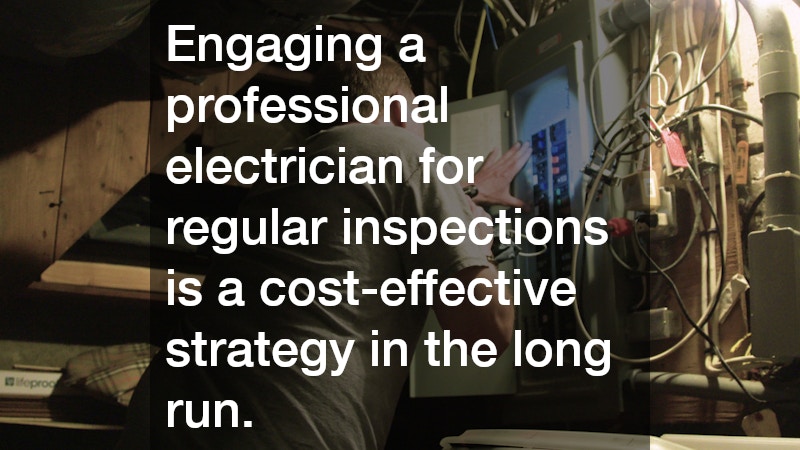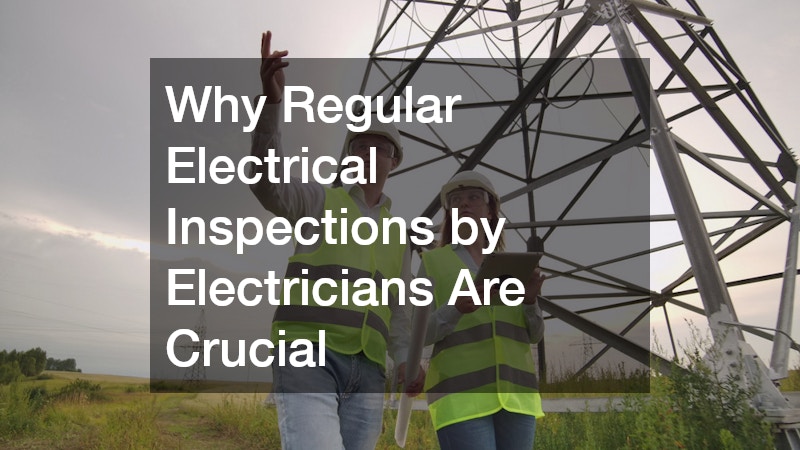Electrical systems are an integral part of modern infrastructure, providing the energy that powers homes, businesses, and industries. Regular electrical inspections by certified electricians are crucial to ensuring these systems operate safely and efficiently.
Without routine checks, electrical systems can develop unseen issues that pose substantial risks to safety and property. Through professional assessments, potential problems can be identified and remedied before they escalate into dangerous situations.
The importance of professional skill in maintaining electrical systems cannot be overstated, as these experts possess the knowledge necessary to comply with stringent safety standards. By engaging professional electricians, property owners can achieve peace of mind and enhanced operational reliability.
How Do Regular Inspections Prevent Electrical Hazards?
Identifying Potential Risks
Electricians are trained to recognize the subtle signs of wear and tear in electrical systems that might not be obvious to untrained eyes. By regularly inspecting the system, they can pinpoint issues such as frayed wires or overloaded circuits, thereby mitigating risk.
These evaluations are essential because electrical hazards can lead to severe outcomes, including fires and electric shocks. The statistics show that a significant percentage of residential fires stem from electrical faults that could have been caught early through inspections.
Having regular inspections performed means catching potential threats early, which can save lives and prevent property damage. Through their assessments, electricians play a pivotal role in safeguarding environment from electrical-based disasters.
Maintaining System Integrity
Routine inspections contribute to maintaining the overall integrity of electrical systems by identifying components that may require repair or replacement. This upkeep is essential in sustaining system efficiency and prolonging its lifespan.
By ensuring that every component functions as intended, electricians help prevent costly breakdowns and extend the operational life of the electrical system. Regular maintenance translates to fewer malfunctions, reducing the chances of unexpected power outages.
Maintaining system integrity is not purely for extending the life of electrical systems but also for optimizing their efficiency. This aspect translates to better energy consumption management, leading to cost savings on energy bills in the long run.
What Are the Signs That an Electrical Inspection Is Needed?
Recognizing Warning Signs
There are several warning signs that property owners should be aware of that indicate an electrical inspection is necessary. These include flickering lights, frequent circuit breaker trips, and unusually high electricity bills.
If fuses blow or circuit breakers trip more often than usual, it may suggest that the electrical system is overburdened. Other indicators include discolored outlets or switches, which can point to underlying issues requiring immediate professional attention.
Ignoring these signs can lead to more severe problems, emphasizing the value of timely inspections. Property owners should remain vigilant and responsive to changes in their electrical systems to prevent minor issues from growing into major repairs.
Frequency of Inspections
The frequency of electrical inspections can vary depending on the type of property and usage of the electrical system. For example, residential properties typically require inspections every three to five years, whereas commercial properties should have annual assessments.
Electrical systems in older buildings may demand more frequent checks due to wear and potential outdated systems. Conversely, newly constructed buildings might require fewer inspections initially until systems begin to age.
Understanding the recommended frequency for inspections helps property owners ensure continuing safety and compliance with local regulations. This proactive approach not only meets legal obligations but also promotes an environment of safety and reliability.
What Are the Benefits of Hiring Professional Electricians for Inspections?
Expertise and Safety Standards
Professional electricians possess a level of expertise that is crucial for conducting thorough and accurate electrical inspections. Their training allows them to adhere to safety standards and protocols, ensuring compliance with local and national regulations.
Hiring professionals for inspections assures property owners that all aspects of the electrical system will be evaluated with care and precision. Their familiarity with evolving standards and technologies enhances safety and optimizes system performance.
By relying on skilled electricians, property owners are able to meet the necessary certifications and safety benchmarks required by law. This not only ensures compliance but fosters a trustworthy environment for occupants and users.
Cost-Effective Solutions
Engaging a professional electrician for regular inspections is a cost-effective strategy in the long run. By identifying potential issues early, property owners can prevent major outages and costly repairs down the line.
Through routine inspections, electricians can suggest improvements or replacements that enhance system efficiency, leading to reduced energy costs. This proactive maintenance approach yields savings on future utility bills and reduces the likelihood of emergencies.
Additionally, proper maintenance minimizes unexpected interruptions to operations, safeguarding productivity and profitability. Investing in inspections thus proves to be a wise financial decision that assures ongoing system dependability and efficiency.
Overall, the role of regular inspections in preventing hazards and maintaining effective system operation cannot be overstated, underscoring their importance in both residential and commercial settings.

